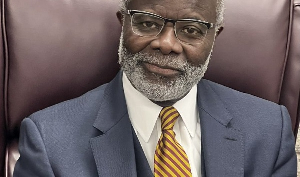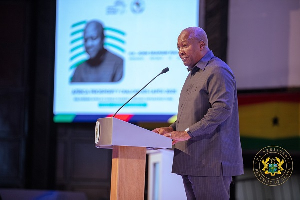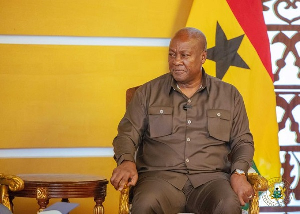The outcome of John Mahama’s election petition will be largely determined by five key issues as outlined on Wednesday 20 January, by Chief Justice Kwasi Anin Yeboah, presiding over the case.
The five key issues are:
1. Whether or not the Petition discloses any reasonable cause of action.
2. Whether or not based on the data contained in the declaration of the 1st Respondent and the 2nd Respondent as President-elect no candidate obtained more than 50% of the valid votes cast as required by Article 63 (3) of the 1992 Constitution.
3. Whether or not the 2nd Respondent still met the Article 63 (3) of the 1992 Constitution threshold by the exclusion or inclusion of the Techiman South Constituency Presidential Election results.
4. Whether or not the declaration by the 1st Respondent dated the 9th of December, 2020 of the results of the Presidential Election conducted on the 7th of December, 2020 was in violation of Article 63 (3) of the 1992 Constitution.
5. Whether or not the alleged vote padding and other errors [......] affected the outcome of the Presidential Election Results of 2020.
About the Election Petition:
John Dramani Mahama after the December polls stated that he disagrees with the outcome of the election which was declared by the Electoral Commission on December 9, 2020.
Consequently, he filed a petition at the Supreme Court to challenge the election results.
In his petition, Mahama avers that neither him nor Nana Akufo-Addo, being the two leading candidates, obtained the constitutionally mandated “more than 50 per cent of the total valid votes cast” per the results declared on 9 December, by Jean Mensa, the EC’s Chairperson.
Mahama argues further that if that 9 December declaration which was based on wrong results and a wrong calculation of the then outstanding Techiman South results were considered, then there was no winner, thereby necessitating a rerun.
In summary, Mahama, through his lawyers, is praying the Supreme Court to annul the declaration of 9 December as unconstitutional and further that all subsequent amendments by the EC, to the extent that those amendments were announced without a prior re-collation in the presence of the agents of the candidates as required by Constitutional Instrument (C.I.) 127, but were thrust on the people of Ghana via unsigned press statements are null and void, and of no effect whatsoever.
Akufo-Addo in his initial response indicated that the evidence of vote padding produced by the petitioner amounted to just 6622 votes, which were insignificant since he was validly elected based on Article 64(1) by a margin of some 500 thousand votes.
He stated that more than 38 thousand polling station results witnessed by the general public and international observers attest to his win.
He further responded in paragraph 35 of his Answer that the results were “corroborated by all media houses of note in the country as well as many local and international observers”.
However, the EU Observer Mission has stated that the collation of results was “less transparent”.
CODEO, the Coalition of Domestic Election Observers, also reported that they monitored the elections in only five per cent of the more than 38 thousand polling stations and that their computation of the presidential election results was based only on that sample.
The mainstream media has also admitted that they did not have the capacity to cover most of the polling stations, with some notably Metro TV and TV3, admitting that they were given figures by the NPP, Nana Akufo-Addo’s political party, to announce.
The case is expected to end by 10 February.
General News of Thursday, 21 January 2021
Source: www.ghanaweb.com
Election Petition: Supreme Court outlines issues for determining Mahama's petition
Justice delayed is justice denied – Frank Davies counters Tsatsu
0 seconds of 2 minutes, 25 secondsVolume 90%
Press shift question mark to access a list of keyboard shortcuts
Keyboard Shortcuts
Shortcuts Open/Close/ or ?
Play/PauseSPACE
Increase Volume↑
Decrease Volume↓
Seek Forward→
Seek Backward←
Captions On/Offc
Fullscreen/Exit Fullscreenf
Mute/Unmutem
Decrease Caption Size-
Increase Caption Size+ or =
Seek %0-9

















